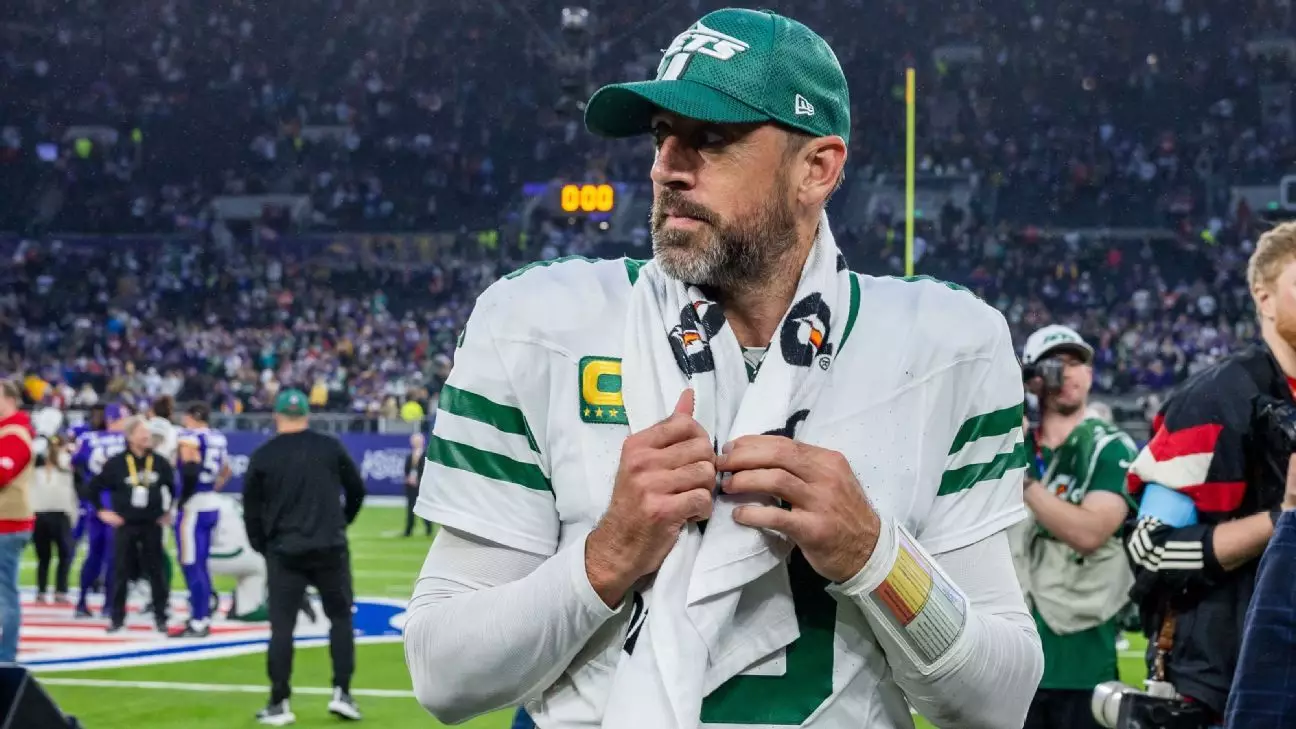The recent firing of Robert Saleh as head coach of the New York Jets has sent ripples of shock throughout the team and its fanbase. This unexpected decision—arriving just five games into the season—has prompted questions about internal dynamics and the organization’s leadership structure. While it may be easy to speculate on the influence of high-profile players like Aaron Rodgers, both the team’s owner and the players dismiss such notions. This incident underscores the complexity of team relationships and coaching in the fiercely competitive world of the NFL.
In the wake of Saleh’s dismissal, many players expressed their disbelief. The abrupt nature of the decision left players, such as C.J. Mosley and Morgan Moses, feeling blindsided. The sentiment across the locker room reflects a collective understanding that coaching decisions can often be tied to team performance, yet the executor of that change often bears the consequences. Tight end Tyler Conklin poignantly articulated the feelings of many, highlighting the team’s lack of production as a significant factor behind Saleh’s firing, suggesting that coaches can be scapegoats in a system that thrives on results.
Additionally, Saleh’s response—a gracious statement thanking the organization and its supporters—reveals his professionalism amidst a highly emotional experience. His acknowledgment of the fans and staff, while avoiding any blame, was a reflection of a mature leader. Such a response also indicates a willingness to take responsibility, a trait that resonates with players and fans alike, reinforcing the understanding that accountability is a two-way street in professional sports.
Aaron Rodgers, the Jets’ star quarterback, has been a focal point of discussions concerning Saleh’s firing. During a recent episode of “The Pat McAfee Show,” Rodgers vehemently denied any claims that he influenced the decision to let Saleh go. His emotional investment in Saleh’s future is palpable, as he described feeling deeply affected by the coach’s dismissal. Rodgers stressed that he views such allegations as not only false but also as an oversimplification of the situation.
In his supporting remarks about interim coach Jeff Ulbrich, who is expected to implement changes, Rodgers showcased a commitment to the team and its ethos. His clear endorsement of Ulbrich indicates a willingness to adapt and support his teammates, regardless of the challenging dynamics resulting from the coaching shake-up. His comments also suggest that team unity is vital, especially during tumultuous times that could otherwise fracture morale.
Integral to Saleh’s firing was the role of Jets owner Woody Johnson, who stated that the decision was ultimately his and was made following minimal discussions with general manager Joe Douglas. His admission of not considering input from Rodgers raises questions about how player feedback is valued in the franchise’s decision-making processes. The notion that Johnson acted independently underscores the sometimes dichotomous nature of ownership and management in the NFL, illuminating the pressures faced by coaches in a results-oriented environment.
Johnson’s assertion about contacting Rodgers prior to the move—specifically, to check on his health—also draws attention to the often complex relationships between ownership, players, and coaching staff. In a league where public perception and media scrutiny can be fierce, transparency and communication become paramount to maintaining a united front.
As the Jets prepare to face the Buffalo Bills, the atmosphere remains charged with uncertainty. The players are grappling with the sudden changes while looking to regain their footing in the season. While the coaching staff may shift, the underlying dynamics of team culture and performance must evolve concurrently. Adapting to new leadership styles and strategies will be crucial for the Jets as they strive for improvement and cohesion on the field.
The upcoming match against division rivals Buffalo may serve as a pivotal moment for the Jets’ season. It will test not only their resilience and adaptability but also the effectiveness of the interim leadership in a high-stakes environment. With strong capabilities from players like Rodgers and internal support systems, the Jets have an opportunity to turn the narrative in their favor, setting the stage for a potentially revitalized season.
Saleh’s firing represents a complicated web of influences and relationships in the world of professional football. As players and coaches navigate this transition, the focus on accountability, performance, and unity becomes ever more critical for the Jets.

